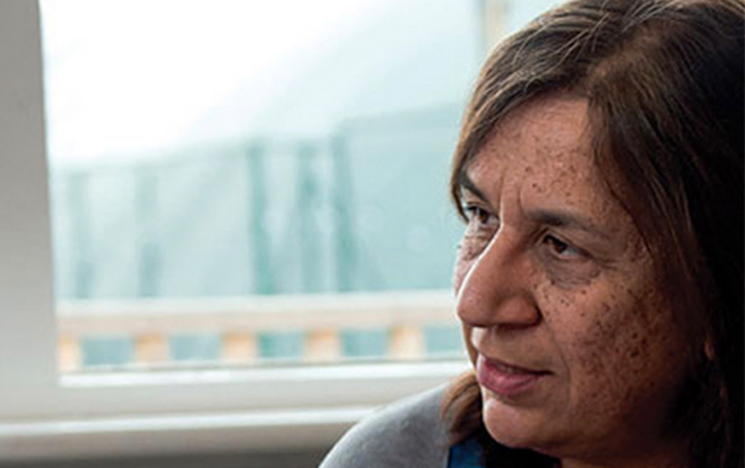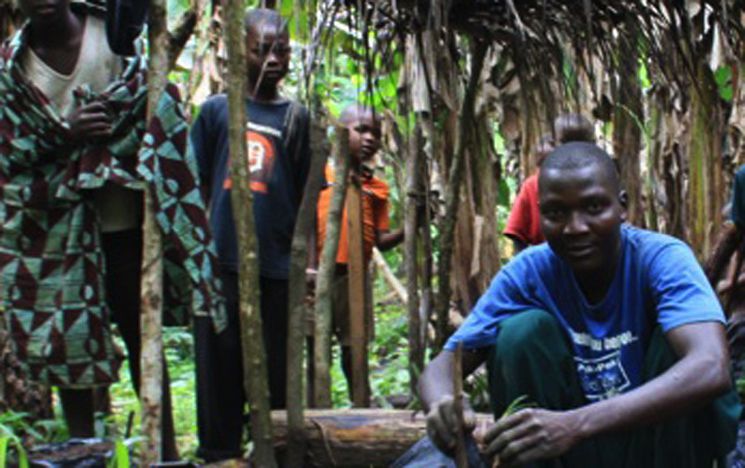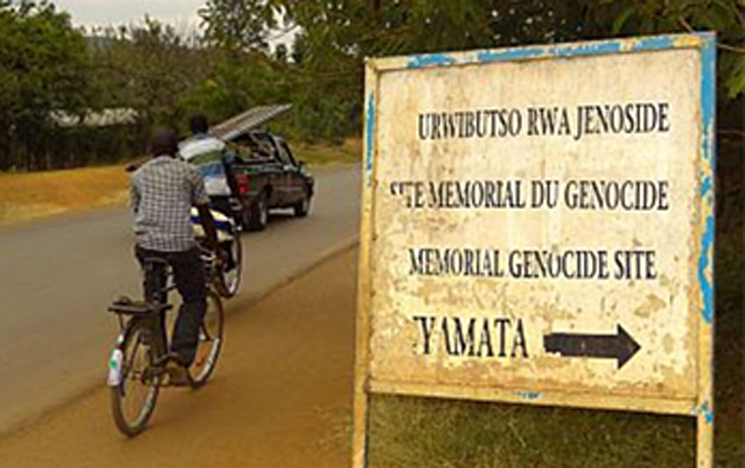[Video opens with birdsong, a hand reaches up towards a branch with leaves]
[Voiceover begins of Angie reciting a poem]
Angie: Though the sunshine was intermittent,
[Hands feeling along trunks and branches, Sacha breathes in deeply]
Angie: Our laughter was constant,
[Keith and Xinglan laugh together whilst walking through a wooded area]
Angie: We get to walk along the garden path,
[Video shows bare feet walking across grass, and then cuts to a participant and their guide walking across a path whilst holding a long cane]
Angie: My imagination starts,
[Hands touching leaves]
Keith speaking as he feels a tree's leaves: I remember yeah this is like, it’s a bit like those christmas trees, you know the branches.
[Keith touches a tree. Keith and Xinglan bend down to touch flowers]
[VOICEOVER] Angie: Just as my lovely guide describes to me,
[People touch purple and white flowers, the video then cuts to a shot of a wildflower meadow in the sunshine]
Angie: The beautiful flowers, bushes and trees,
[Keith bends down on to the forest floor]
Keith says: What colour is that?
[Sacha is bent over stroking the ground]
Sacha says: It’s a green, like a deep green, you know like moss that grows on bark or trees.
Keith: It’s beautiful isn’t it?
Sacha: It's kind of unusual I think to find it, i don’t know...
Keith: Yeah, moss..
[The video cuts to participants sitting inside a minibus, smiling and chatting. Next, a shot of the motorway the minibus is driving down, with cars in the background]
Keith: Now, you know, it is a time that things should be made accessible to everyone as much as possible and don’t say 'oh you can’t do that ‘cause that’s a bit dangerous'. Don't tell us that, we’ll decide that.
[Video cuts to a group of participants gathered together who are laughing and talking]
Keith continues: Because we’re adventurous too and we want to explore just as anyone else does.
[Birds sing as Keith and Xinglan walk together through the trees]
[VOICEOVER] Sacha: Coming to somewhere like Wakehurst, it’s been really important to be able to touch and feel and smell. It’s been such a really beautiful experience, coming on this piece of research, to just reconnect really with nature since losing my eyesight.
[People sit at a table making art with leaves and other natural objects. People touch and smell the items]
[ON CAMERA] Sacha: Yeah just really sort of be free, be free to explore.
[Birdsong is heard as Sacha and Helena walk together through a summery Wakehurst. They join the rest of the participants at a long table in a field]
[VOICEOVER] Harri: I think we know that the heritage sector and access to green spaces isn’t equal for everybody.
[Shot of Bella using a cane whilst walking with her mum and Karis]
Harri continues: I think that’s why it’s been so exciting partnering with Sussex University because you’ve allowed us to make connections with groups that we weren’t working with.
[Small bell rings. Participants touch grass and small flowers during an art activity. Participants offer artistic advice. Keith uses a rolling pin on clay and then places flowers and plants in the clay]
[VOICEOVER] Helena: How nature has got that calming effect and very ground, nourishing effect on us.
[Bella feeds jackdaws some nuts. Ambient but upbeat music begins]
Helena continues: As human beings and have the opportunity then to engage in artwork, in creating something.
[Ducks and ducklings jump off a grassy bank into a lake]
Guillermo: I think people with impairments generally can be very isolated so this is a great opportunity. People can get out of the house.
[Footage cuts to a waterfall where a person touches moving water with their hands]
Keith: Yeah what gives us pleasure is being amongst nature, you don’t have to be able to see it.
[Sacha walks with Helena. They stop to smell some flowers]
[VOICEOVER] Sacha: I really hope that Wakehurst and various other places can just get a bit more inclusive into finding ways of
[Sacha appears onscreen]
Sasha: navigating people in their space through using different senses.
[Video cuts to shot of tactile sticks, participants making clay mobiles, participants gathered round a long table]
Sacha continues: So it might be really bold colours, it might be touch, it might be following ropes, it might be feeling with your feet. You know there’s lots of different ways we can make things more approachable for everybody.
[VOICEOVER] Angie: These are some of wonders of nature,
[A dragonfly flies past and a duck is shown swimming in the background]
Angie: So rich and fancy free,
[Jackdaws fly over as others stand in a field]
Angie: Surely the garden,
[Drone shots of Wakehurst's landscape, lake, trees, all to the sound of birdsong]
[Shot of Angie wearing a hat as they sit among the flowers in the sunshine]
Angie: is a lovely place to be.
[End of poem]
Angie: Thank you.
[Angie laughs]
Anna: That was amazing.
Angie: Was it okay, could you all follow?
[Karis and Anna walk over to Angie to congratulate her on her poem]
[VIDEO CARD: This is a University of Sussex research project led by Dr Karis Jade Petty studying the arts as a pathway to inclusion in the heritage sector. Thank you to all our collaborators and partners, including Royal Botanic Gardens Kew, Wakehurst; East Sussex Vision Support and Blatchington Court Trust].
[VIDEO CARD: This project is funded by UKRI and Royal Botanic Gardens Kew, Wakehurst].
[END CARD: Royal Botanic Gardens, Kew logo appears alongside University of Sussex logo].



